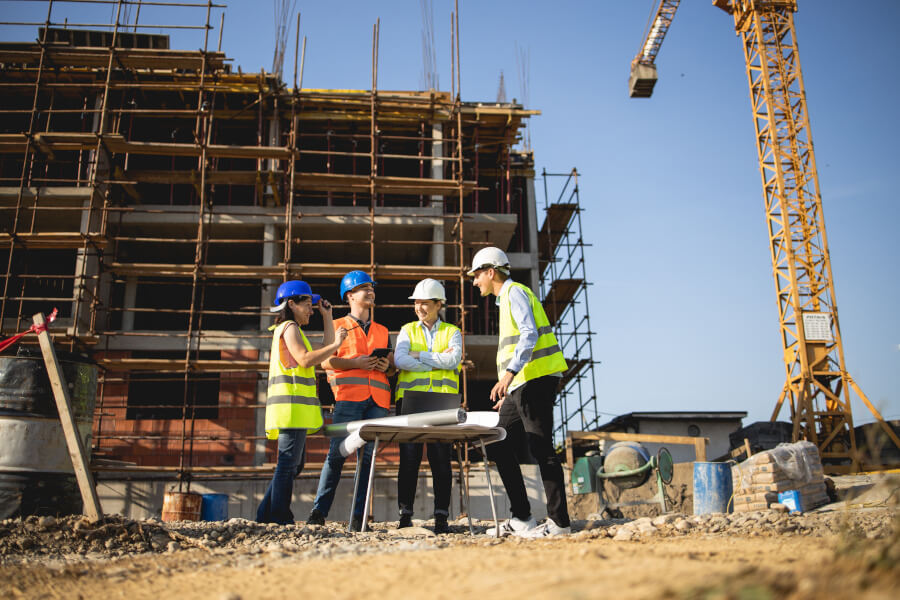Construction skills shortage challenges – how can we overcome this?

The UK construction sector is thriving. Last year it employed around three million people in a diverse range of roles. Contributing £110 billion to the UK economy, the construction industry makes up 7% of annual GDP. Although the industry has seen year on year growth, it is facing a massive challenge. With an increasing amount of building projects and government plans requiring more and more skilled workers, the lack of qualified workers looks set to negatively impact sector growth. So what is the solution to this skill shortage? Let’s take a closer look.
Investing in apprenticeships
Historically, many construction companies sought to employ skilled and experienced workers for their construction projects. This was an effective method to ensure that deadlines were met and that standards were universally high. It was, however, a short-term solution. As the aging workforce now nears retirement age, a lack of investment in training for the younger generation has helped to create the skills shortage that the industry now faces.
Gender imbalance in construction businesses has also had a significant impact on the construction skills gap in recent years. With women making up only 11% of the construction workforce sector-wide, and 2% of tradespeople, it’s not difficult to see where the skill gap has arisen. A new wave of apprenticeship schemes and a willingness to diversify the workplace has seen initial success but there’s still a long way to go. Construction firms now need a wider variety of vocational courses alongside on-site training to make a success of these new apprenticeship schemes.
Promoting careers in construction
Construction has long been viewed as a male-dominated arena and for many years this has been the case. Modern advancements in technology, however, alongside a drive to incorporate more flexible working practices has made the construction industry a more attractive career choice for young people regardless of gender. Many construction companies are now improving their working culture to be more inclusive, flexible and focused on developing the individual. As other companies see the successes of these working innovations, they will hopefully follow suit and help to transform the construction industry.
When it comes to technological advancements, innovations in automation are developing at an extremely fast pace. If the construction industry can adapt to these changes then it will go a long way to bridge the skills shortage and meet the demand for new, more technically focused competences. BIM (Building Information Modelling) is already being used as a collaborative design tool while, although still in its infancy, 3D printing looks set to revolutionise the way we create the built environment of the future.
Government investment and involvement
At the moment, several large construction companies are leading the field in tackling the labour shortages and encouraging new talent within the current workforce. With government support, the chances of successfully obtaining skilled construction workers are much higher. Investing in education is something that both the government and construction companies can do together. Ensuring that schools are equipped with the necessary resources and that students are inspired to follow a career in construction is essential for the future of the industry.
The question of Brexit also weighs heavily on the wider construction industry. Many skilled, semi-skilled and manual labouring jobs are currently filled by workers from EU countries. With the uncertainty surrounding Brexit, lots of these workers are leaving the UK because of job instability and insecurity. The government’s inability to negotiate a deal is having a far-reaching impact on the construction industry. The skills shortage is increasing while the supply of skilled labour workers looks set to decrease without a stable framework for EU workers in the UK.
As you can see, the construction skills gap is a major challenge. It is, however, not insurmountable. If people involved in the construction industry work together to find viable solutions for recruitment and retention then the UK construction industry will undoubtedly continue to flourish. Several major infrastructure projects and a drive to build thousands more homes across the country looks set to propel the construction industry into future prosperity.
If you’re a construction worker and you’re looking for your next role or you’re interested in a career in construction contact PPR today. Call us on 01895 808188 or send us a message info@ppronline.co.uk online.







